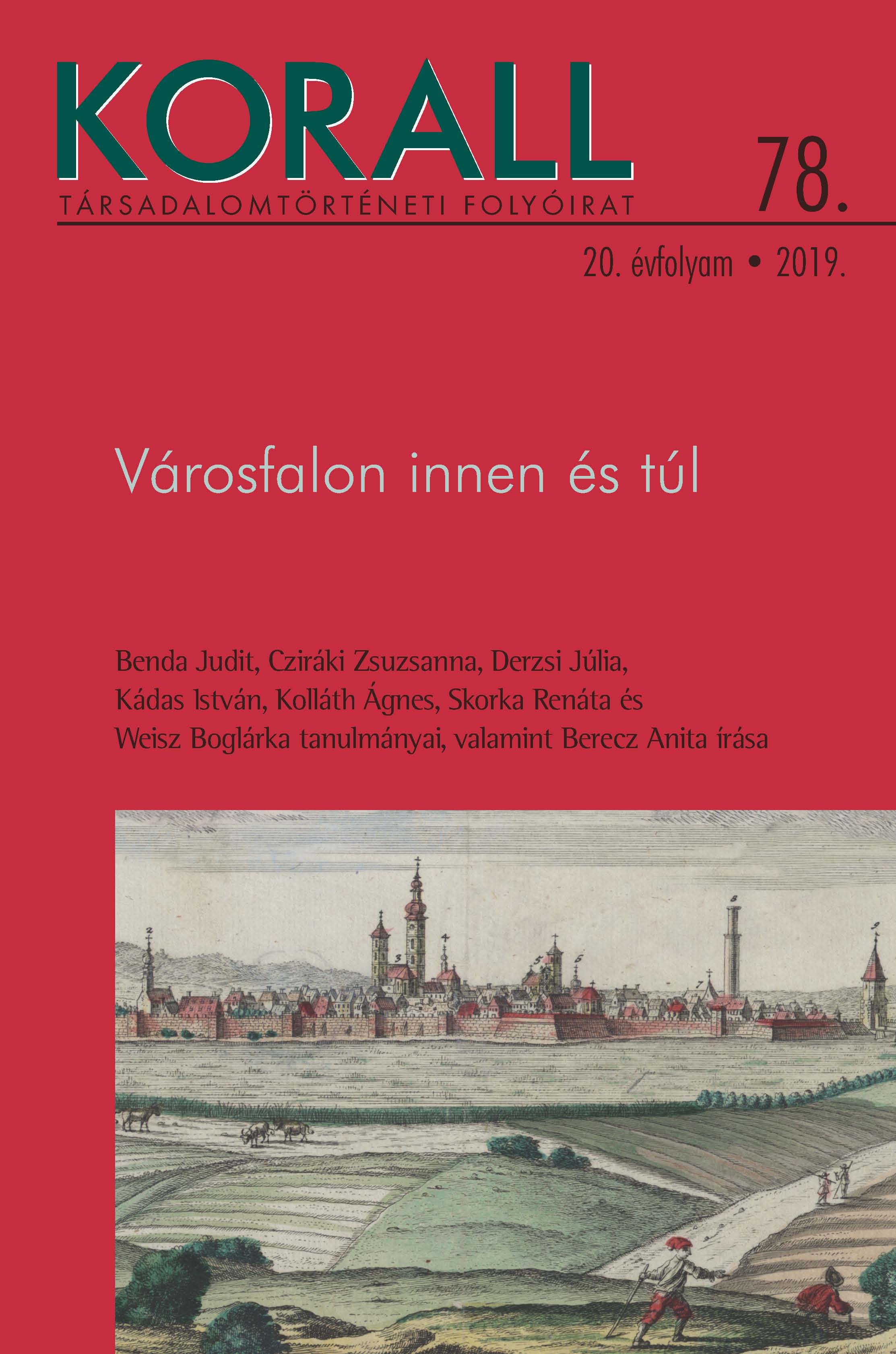A város a megyében. A városok a 14. századi megyei és nádori közgyűléseken
Town in the County: Towns at Fourteenth-Century County and Palatinal Assemblies
Author(s): Boglárka WeiszSubject(s): Social history, 13th to 14th Centuries
Published by: KORALL Társadalomtörténeti Egyesület
Keywords: history;hungary;medieval;history of towns and communities;
Summary/Abstract: Medieval towns in the Kingdom of Hungary did not exist in isolation: they were bound to other towns, to villages in their county and to the society of the whole country at large by complex economic and familial ties and interests. The connection between towns and county or kingdom can be best examined through their participation in the relevant assemblies, especially those where the towns or burghers were litigated even though their urban rights exempted them from their jurisdiction. Despite the scattered evidence, the presence of town representatives is demonstrable in nationwide assemblies of the Angevin kingdom. While the towns used these assemblies to have their rights confirmed or to acquire new ones, and to petition the king with requests, they also provided opportunities for adjudication between a town and out of town entities. Although towns and their resident burghers were both exempt from the jurisdiction of the county palatine – and, as such, from that of the palatinal assembly – this exemption only pertained to their affairs as burghers. As soon as they entered the ranks of landed nobility through the acquisition of lands out of town, they were no longer entitled to use their exemption in matters relating to these – if they suffered grievances, it was not even in their interest to do so. This means that while assemblies could be used to litigate against them, they were also entitled to appeal for legal remedy in matters concerning the town and its burghers, as well as their county properties.At the same time, palatinal and county assemblies were also used by the municipal governing bodies for securing their prerogatives, specifically their customs exemptions, and for obtaining the official approval of the county (or counties) participating in the given assembly. In addition, they also brought unlawful customs collection cases to court. Although all the surviving evidence is of cases concerning the customs exemption in the given county, it is justifiable to suggest that they took action at these assemblies also in cases where their country-wide customs exemption was violated. In the event of such violations, although they could voice their complaints at country-level assemblies, it is likely that they did so at least in their home county, or, in case of palatinal assembly, in a neighboring county.
Journal: Korall - Társadalomtörténeti folyóirat
- Issue Year: 2019
- Issue No: 78
- Page Range: 43-58
- Page Count: 16
- Language: Hungarian

